Over 30 years of anarchist writing from Ireland listed under hundreds of topics
Marriage Equality - I'm Voting Yes, but I'm Not Happy About It.
“Marriage equality” represents a victory for conservatives within the LGBT movement in nrrowing and limiting the horizons of ur politics, and for conservative and homophobic social forces in diffusing and recuperating the potential for radical transformative change opened up by the gay liberation movement.
Marriage as a Bourgeois, Patriarchal Tool Which Has Been Used to Trap Women
Fionnghuala is calling for a Yes vote but she also argues from an anarchist feminist perspective against the institution of marriage. It is a bourgeois, patriarchal tool which has been used to trap women, our sexualities, as well as to force reproduction and to force a woman to enter into reproductive labour.
Marriage equality - Nether Non-Monogamy nor Monogamy Constitute the Only "Correct" Choice for Anarchists
While sharing some of my fellow anarchists criticisms' of marriage as a patriachal institution I feel unable to tolerate the existence of laws which blatantly discriminate against queer people.
Of course everyone should have unconditional access to housing food migration etc but until we reach full libertarian communism people have to make complex choices which may include wage slavery or marriage.
We never criticise the personal choices of straight comrades who have chosen to marry often for reasons involving visas, recognition of parenthood or tax.
Benefits of the Fight for Marriage Equality in Changing a Homo/Bi/Transphobic Culture
The fights like marriage equality, which, on it's surface, seems really heteronormative, have the benefit of creating a halo effect and changing a homo/bi/transphobic culture. It makes queer people visible, it brings to light unequal treatment and starts a societal conversation that can and should be taken advantage off.
The Fight Against the Water Charges - Where Next? - Contribution to DABF 2015 Panel with Video
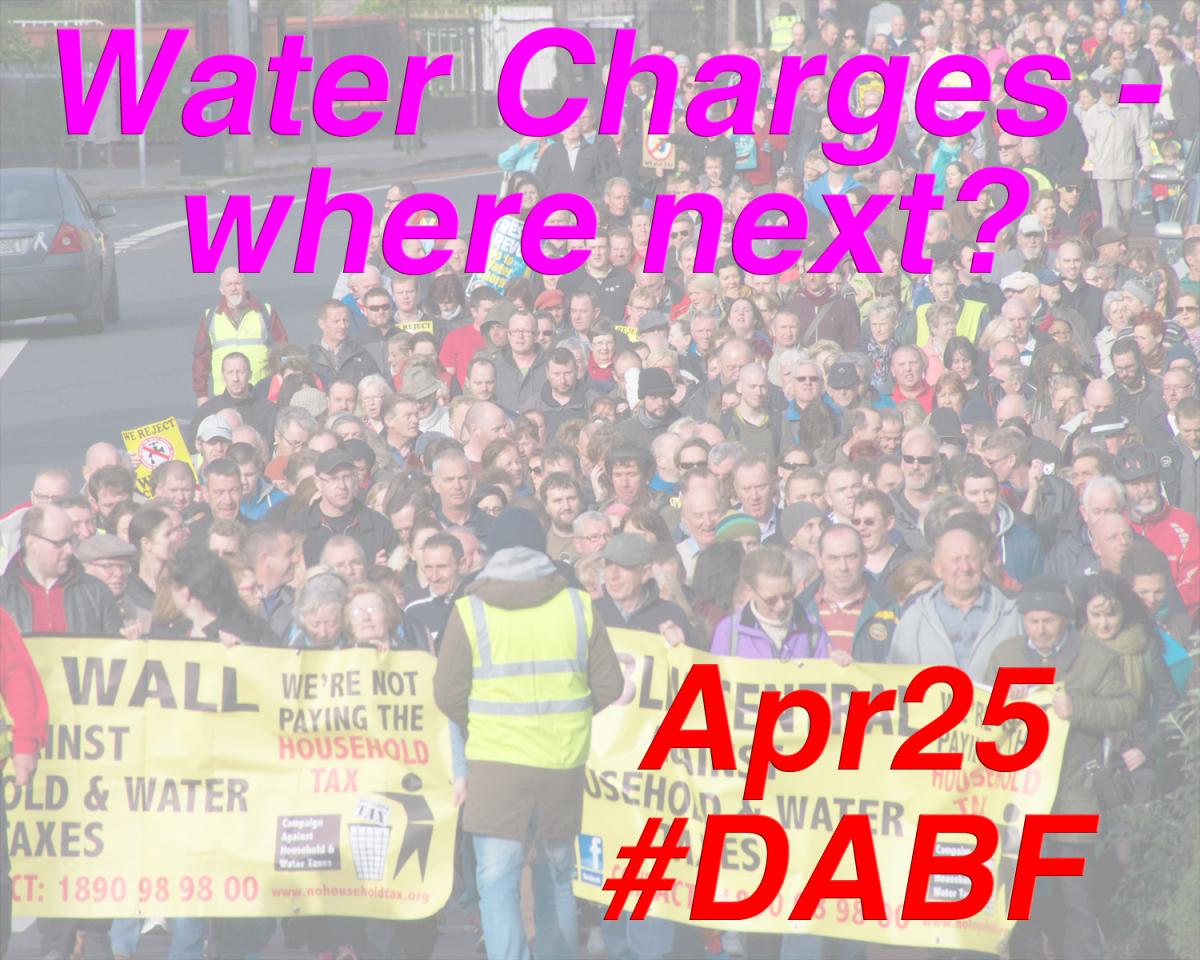 Can we turn the water charge movements away from the self-destruction of taking the electoral route, can we convince people in large numbers that it is on the streets and in conversations with their neighbours that the battle will be won not in the ballot box?
Can we turn the water charge movements away from the self-destruction of taking the electoral route, can we convince people in large numbers that it is on the streets and in conversations with their neighbours that the battle will be won not in the ballot box?
Over the coming months we need to solidify the message of the twin direct action tactics of blocking meter installation and not paying the bills – the message of people seeing themselves as leaders in their communities in terms of having that conversation – ‘I’m Not paying. You Shouldn’t Pay’ – retaining the many headed monster and avoiding the false ‘unity’ that involves leadership from above being imposed on self-organising community campaigns
Murray Bookchin - The Next Revolution (Review)
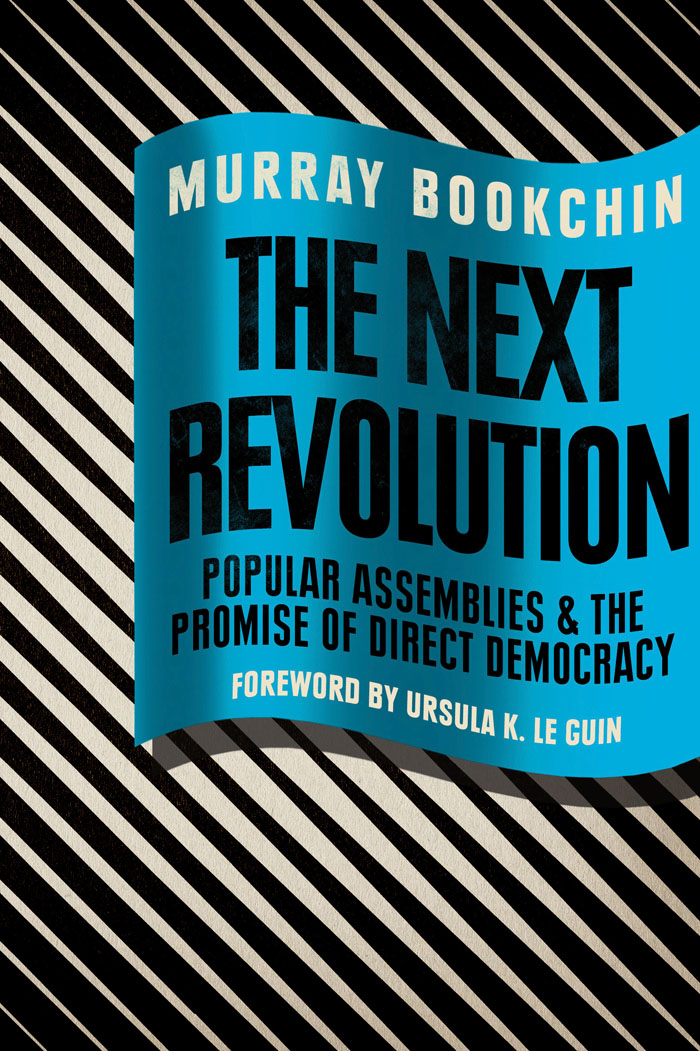 Despite being a pathbreaking figure from the 1960s onward in anarchist, green, and directly democratic political circles having predicted early on the significance of ecological issues and technology to leftwing social struggles Murray Bookchin today remains unknown to many on the left, and to those who do know of him he remains controversial.
Despite being a pathbreaking figure from the 1960s onward in anarchist, green, and directly democratic political circles having predicted early on the significance of ecological issues and technology to leftwing social struggles Murray Bookchin today remains unknown to many on the left, and to those who do know of him he remains controversial.
Disliked by class struggle anarchists and Marxists for his advocacy of community organising over workplace organising, and by anarchists involved in single issue activism for their lack of organisation and supposed concern with personal rebellion over social change, he made quite a few enemies in his last days for fiery polemics directed at his intellectual opponents. While his supporters in organisations like New Compass defend him for his consistency, others argue that he ended up alienating potential allies by refusing to ever waver on his specific revolutionary vision: focused on creating a municipal confederation of ecological communities practicing direct democracy, founded on a philosophy of science, reason, and humanism.
This new collection of essays from the last few years of his life may provide a useful entry point of his philosophical and political project called social ecology and generate further debate for the future of libertarian socialist organising in an age of increasing militarism and climate crisis.
The Twisted Road to Partnership: Can the trade union movement be saved from the bureaucracy?
As the trade union leadership does its best to drag us back into a new round of ‘social partnership’, Gregor Kerr – an activist in the Irish National Teachers Organisation – compares the best and worst of recent developments in the trade unions and poses a challenge – Can we save the movement by ridding it of the stultifying bureaucracy that seems set to strangle the life out of it?
The past number of months have witnessed the best and the worst of the trade union movement and its leadership. On the one hand, the presence of 5 trade unions – Unite, Mandate, CPSU, CWU and OPATSI – in the leadership of the Right2Water Campaign has certainly contributed to its being able to mobilise some of the biggest street mobilisations in the history of the state. But on the other hand the paucity of ambition and their perspective on how change in society is brought about, sees those unions and their leaderships doing their best to drag what has been largely a community-led campaign down the well-trodden and unlikely-to-succeed electoral path.
Island of No Consent - Maternity Care and Bodily Autonomy in Ireland
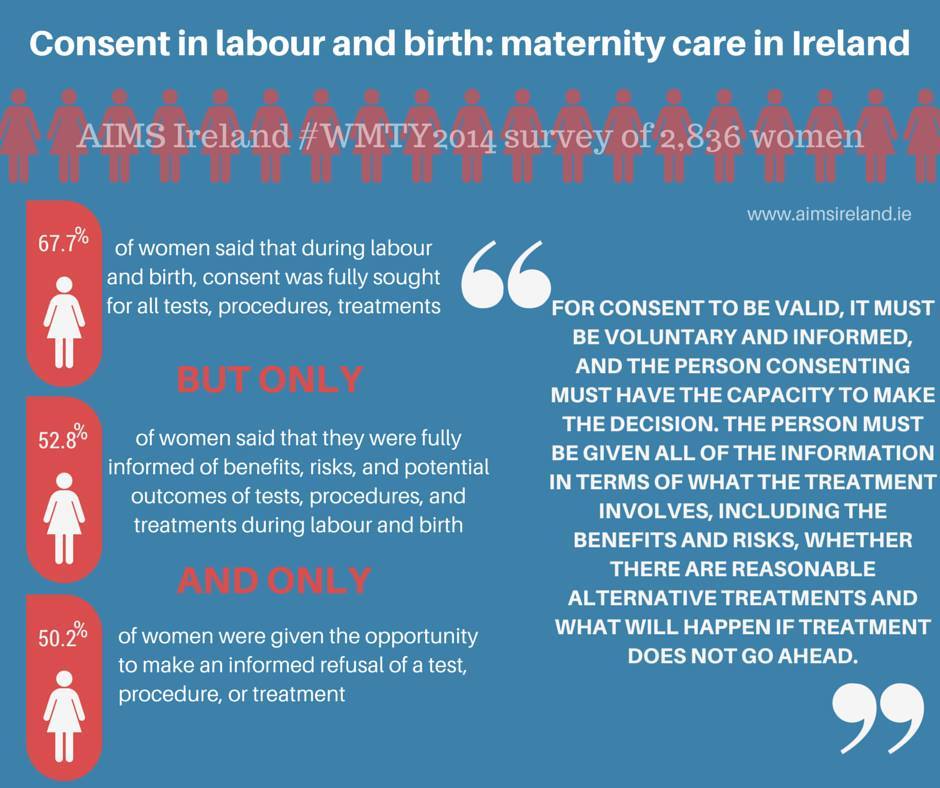 On the last day of August 2014, in a ruling the country and the media barely noticed, Mr Justice Ryan in the High Court in Kerry found against Ciara Hamilton and for the HSE in an utterly terrifying moment for every person becoming pregnant or giving birth in Ireland from here on out. Ciara Hamilton had taken a case against the Health Service Executive after the birth of her second child, during which a midwife had, without obtaining consent, broken her waters, leading to an umbilical cord prolapse and an emergency caesarean section.
On the last day of August 2014, in a ruling the country and the media barely noticed, Mr Justice Ryan in the High Court in Kerry found against Ciara Hamilton and for the HSE in an utterly terrifying moment for every person becoming pregnant or giving birth in Ireland from here on out. Ciara Hamilton had taken a case against the Health Service Executive after the birth of her second child, during which a midwife had, without obtaining consent, broken her waters, leading to an umbilical cord prolapse and an emergency caesarean section.
The breaking of waters during labour, in medical terms, amniotomy or Artificial Rupture of Membranes (ARM), is not recommended best practice precisely because it can lead to a cord prolapse, which is a serious emergency when giving birth as it cuts off the blood flow and air supply to the baby. If the person giving birth is a Strep B carrier, as Ciara Hamilton was, it can also carry an increased risk of Strep B transferring to the newborn and causing serious damage to the baby, as happened to Ciara Hamilton’s child. It is listed as a Do Not Do under NICE recommendations. Despite this, and despite ARM being known to carry dangers and risks to both birthing woman and baby, it is still a widely carried out procedure in many Irish maternity hospitals. In the case of Ciara Hamilton’s birth, it was a procedure carried out by a midwife without seeking consent to do so.
Rojava - Revolution Between a Rock and a Hard Place
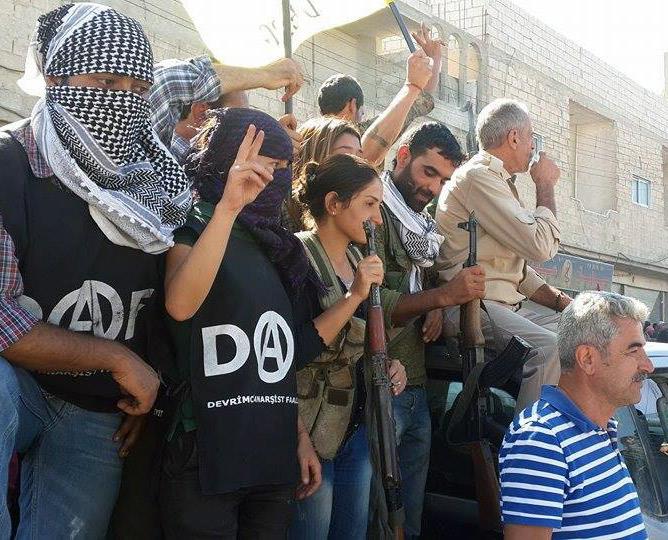 Revolutions are seldom made in favourable circumstances. Russia 1917 emerged from the mass slaughter of WWI and the disintegration of an economy under the pressure of the supply demands of that war. Spain 1936 emerged from a well planned and executed fascist coup amongst a powerful military backed and armed by international fascism. Schemas for revolution that depend on quiet times and plenty may well be doomed from the start.
Revolutions are seldom made in favourable circumstances. Russia 1917 emerged from the mass slaughter of WWI and the disintegration of an economy under the pressure of the supply demands of that war. Spain 1936 emerged from a well planned and executed fascist coup amongst a powerful military backed and armed by international fascism. Schemas for revolution that depend on quiet times and plenty may well be doomed from the start.
That said it’s hard to imagine more impossible conditions for revolution than that of Rojava. A brutal civil war, 3 small areas of territory that were kept in a state of low development by the previous regime and are not even linked to each other. A fanatic army of barbaric religious extremists armed with captured looted US heavy weaponry attacking from one side, a hostile state quietly backing that army and closing its borders to the good guys on another and waiting in the wings the old regime and its long history of brutal counter insurgency. And above all this the tactical and strategic intervention of an imperialist power whose manipulations have devastated the land to the South East over a period of almost three decades.
All the Evil in the World – Pandora, the One Percent and the New European Reaction
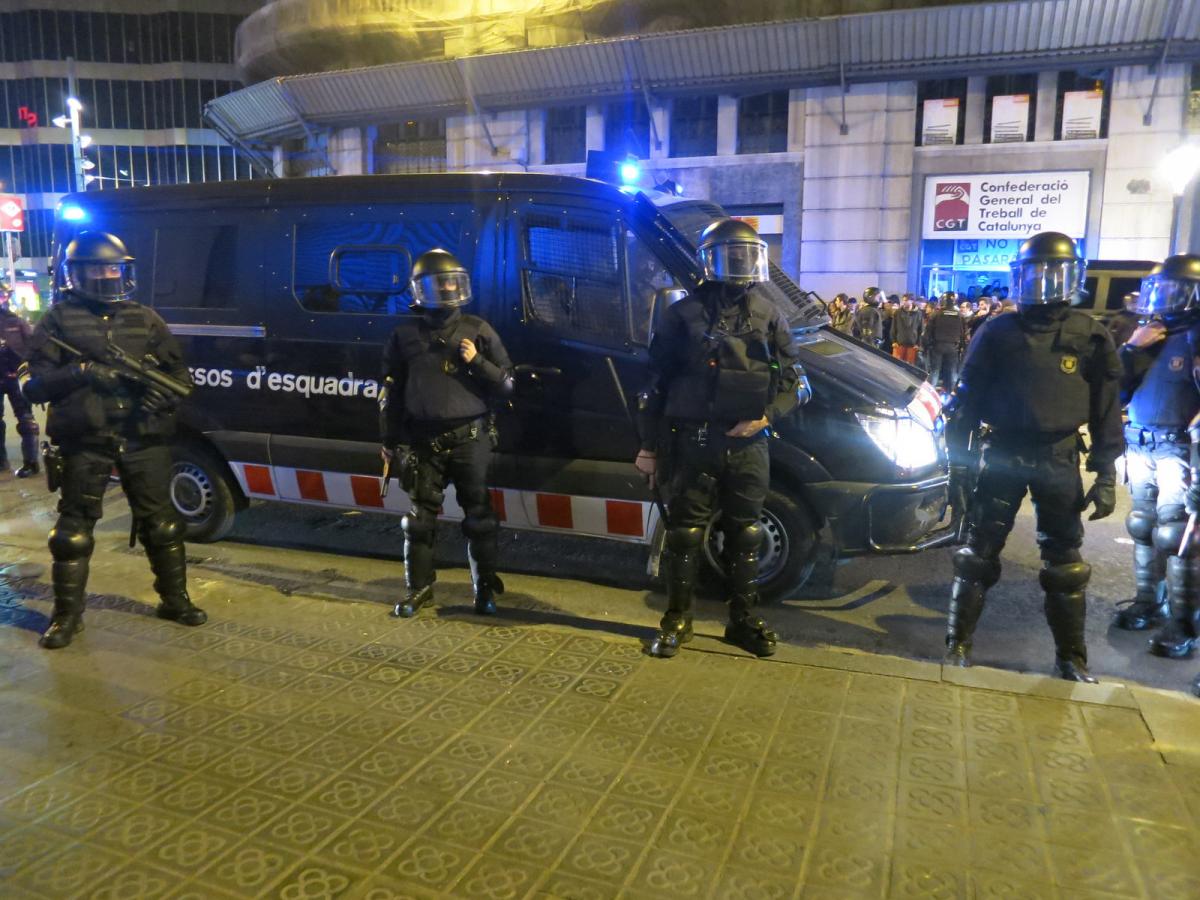 A spectre is haunting the people of Europe, but this time it's not one to be welcomed. All the powers of new Europe have entered into an unholy alliance to raise this spectre: Merkel and Rajoy, Hollande and Cameron, Irish Blueshirts and Greek state police. Where is the movement in opposition that has not been decried as terroristic by its opponents in power? Where is the opposition that has not cried out for law and order in the face of the more progressive parties? Two questions result from these facts:
A spectre is haunting the people of Europe, but this time it's not one to be welcomed. All the powers of new Europe have entered into an unholy alliance to raise this spectre: Merkel and Rajoy, Hollande and Cameron, Irish Blueshirts and Greek state police. Where is the movement in opposition that has not been decried as terroristic by its opponents in power? Where is the opposition that has not cried out for law and order in the face of the more progressive parties? Two questions result from these facts:
-
What class, classes or section of the population is conjuring up this phantasm? IE, what classes benefit from authoritarian extremism?
-
What is to be done? IE, What course of action should the people of Europe take to counter this threat? And what role do the libertarian left have to play in bringing that course of action to fruition?
To answer these questions, it is essential to examine the current wave of reaction across the European continent and asses its purpose and its source.

